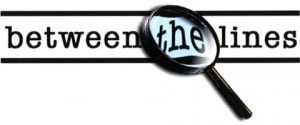
What the future holds is unclear, but it doesn’t look good for the Black-Eyed Susan paddlewheel boat. There was some excitement last year over the prospects of the vessel becoming a draw for Snow Hill, which was acquired for the town by the county for $400,000. The boat was purchased by the town officially, but the funding came from the county in the form of a no-interest loan. Therefore, local government certainly has a major interest in this venture.
From the beginning, the riverboat was a risky proposition, but the thought was the goal of helping Snow Hill with new tourism opportunities was important and worthy of the funding commitment. This summer was going to be a solid indicator of its potential success or failure, but the concern all along was going to be whether there would be enough people to turn a profit. An influx of interest from out-of-town visitors was always going to be needed for it to be a financial success.
As it stands today, the reality is the boat is a lemon and in serious disrepair, the purchase is regrettable. Another $600,000 will be needed to get the boat operational, according to a mandatory five-year Coast Guard inspection. The blindside will likely end this operation. The town might just want to sell it as is and move on. It will take $300,000 in repairs before the boat could even be towed back to Snow Hill to simply be used as a stationary restaurant of some sort. Neither expense will turn out to net a return on investment. It’s a worst-case scenario situation for the town, county and the private tenant.
Four years ago, the property tax rate in Berlin was 68 cents per $100 of assessed property value. In 2019, the town raised its tax rate to 80 cents, an 18% increase. The pandemic derailed the town’s stated intention to increase the tax rate again the next year. Last year, in what appeared to be a compromise and over the objections of Mayor Zack Tyndall, the rate jumped to 81.5 cents. Early budget talks seem to indicate a will among the council majority (encouraged by town staff) to increase the tax rate to at least 85 cents in the next budget. If this tax rate goes through, it will mean the property tax rate in Berlin has increased by 25% in four years. This is not sustainable.
During this week’s meeting, Tyndall made it clear he thinks the current general fund budget requests from the town departments can and should be trimmed. Town staff objected, saying there is nothing that can be cut or at least no expenses they are willing to consider eliminating from their proposed budgets. Town departments say they followed the mayor’s orders to submit “bare bones” budgets for review, and administrators resent being asked to make further cuts when there is no fat to speak of in their requests.
Toxic would be an apt way to describe the relationship between Berlin’s appointed officials and Tyndall. The disdain certain department heads have for Tyndall is obvious. At this week’s discussion over the tax rate, there were different instances when antipathy was made clear. Administrative Director Jeff Fleetwood, Finance Director Natalie Saleh and Chief Arnold Downing voiced clear frustration with Tyndall and his approach to the budget process. The reactions came after Tyndall said he was “disappointed” in staff at one point. Tyndall is clear he wants to hold the property tax rate flat – which would still bring in new revenue due to assessments increasing — but there is about $460,000 in general fund expenses that will need to be cut to keep the tax rate flat at this time. Tyndall is right to want to make all efforts to retain the same tax rate because town residents have already been warned water, sewer and stormwater rates will increase in the next fiscal year. However, the disconnect between the mayor and town administrators is unhealthy. A morale problem at town hall is obvious and a team approach is needed over a dictating style. Consensus and compromise are secret sauces behind productivity and both are lacking.
A property tax rate of 85 cents per $100 is needed, according to town staff to close the gap. Based on his own calculation, Tyndall thinks it’s more like 90 cents to address the budget overage as stated Monday. For a property with a $350,000 assessment, an increase of the tax rate from the current 81.5 cents to 85 cents represents an increase of $122.50 annually, from $2,852.50 in paid taxes to $2,975. If a compromise is possible and new revenues are identified, there seems to be a potential for a smaller increase to 83 cents, which would only mean $52.50 more in annual tax expenses for that same $350,000 assessed property.
Since the 2020 election, it’s been interesting to observe the strained relationships between Tyndall and staff. It’s not a surprise, as town staff clearly did not want him elected mayor. Tyndall believes he is representing his constituents by fighting to keep their taxes in check after the big bump in 2019, while staff contends their budgets are needed to keep operating the town at a safe and healthy level. It will require a balance from the council, the ultimate decision makers. At one point, Tyndall said a nine-cent property tax rate increase was needed to meet expenditure requests with a town staff member joking that would be great. The increasing cost to live in Berlin every year is not a laughable matter. It’s serious business. The town has a general fund budget meeting set for Monday at 5 p.m. at town hall.

